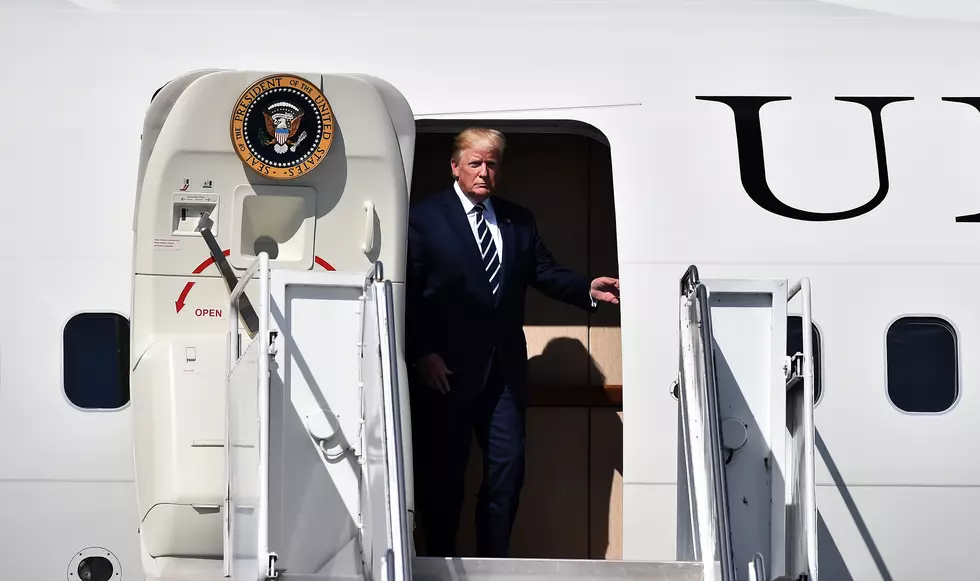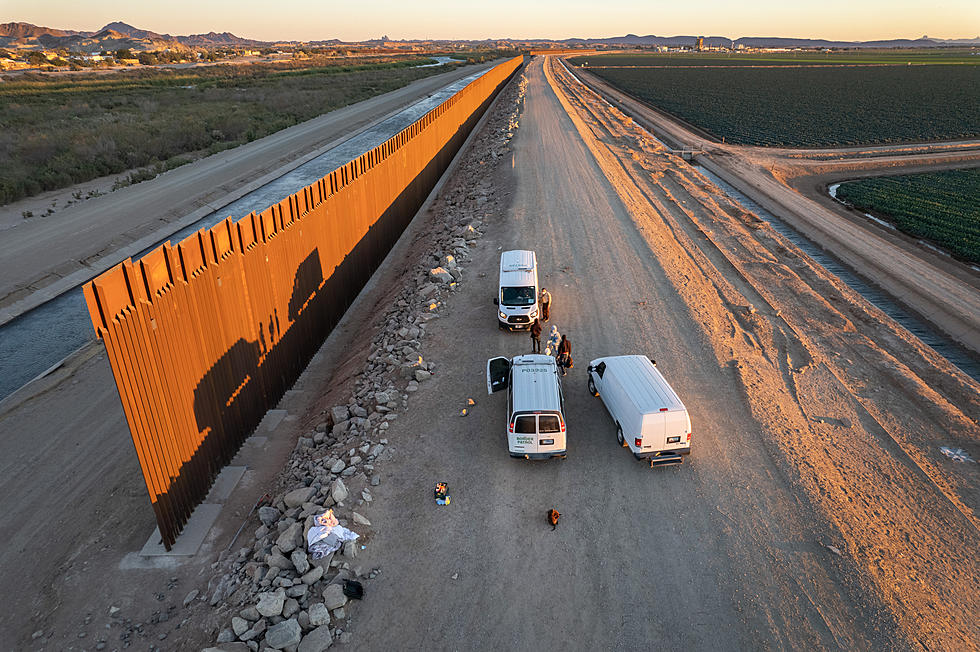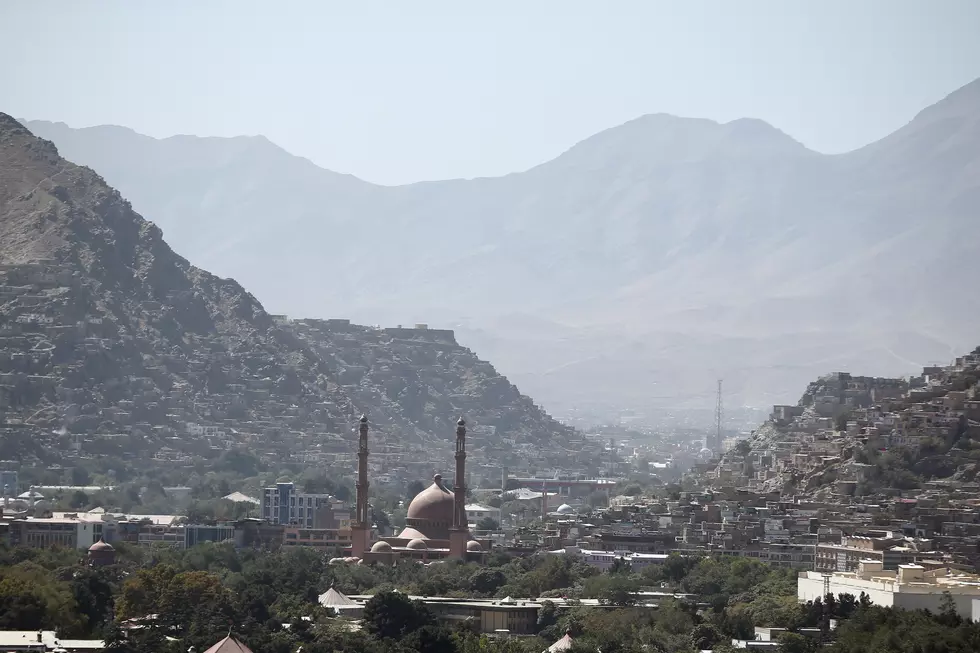
President Says ‘a Lot of Progress’ Needed to Stop 5% Mexico Tariff
WASHINGTON (AP) — Straining to stave off threatened U.S. tariffs, Mexican and American officials claimed progress in White House talks, but President Donald Trump said Thursday that a "lot of progress" must be made to halt the import taxes he is holding out as a way to force Mexico to stanch the flow of Central American migrants flooding America's southern border.
Talks were to resume later Thursday.
Underscoring the scope of the border problem, the Department of Homeland Security announced separately that U.S. Border Patrol apprehensions of migrants illegally crossing the border hit the highest level in more than a decade in May: 132,887 apprehensions, including a record 84,542 adults and children together, 36,838 single adults and 11,507 children traveling alone.
Trump, renewing his threat of import taxes on all Mexican goods, tweeted from Ireland that the Washington talks would continue "with the understanding that, if no agreement is reached, Tariffs at the 5% level will begin on Monday, with monthly increases as per schedule."
"We're having a great talk with Mexico," Trump told reporters in Ireland before leaving for France to attend a D-Day ceremony. "We'll see what happens. But something pretty dramatic could happen. We've told Mexico the tariffs go on. And I mean it, too. And I'm very happy with it."
Mexican Foreign Secretary Marcelo Ebrard said immigration, not tariffs, was the main focus at the White House meeting, which included Secretary of State Mike Pompeo, Vice President Mike Pence and other U.S. officials.
"We are optimistic," he said at a news conference at the Mexican Embassy.
Meanwhile, Republicans in Congress are threatening their own confrontation with Trump, warning the White House that they are ready to stand up to the president to try to block his tariffs, which they worry would spike costs to U.S. consumers, harm the economy and imperil a major pending U.S.-Mexico-Canada trade deal.
The Republican president slammed Democrats in Congress, saying they don't want to fix U.S. immigration laws. He said Congress probably won't address immigration legislation until after the next presidential election.
"They want to just ride it out," he said.
A "lot of people, senators included — they have no idea what they're talking about when it comes to tariffs," Trump said. "They have no — absolutely no idea."
"When you have the money, when you have the product, when you have the thing that everybody wants, you're in a position to do very well with tariffs, and that's where we are," he added. "We're the piggybank. The United States is the piggybank. It has all the money that others want to take from us, but they're not taking it so easy anymore."
Without a deal, the first tariffs — 5% taxes on imports from Mexico, eventually increasing to 25% — are to go into effect next Monday, and Trump has said that is "more likely" than not to occur despite the stiff and vocal opposition from many fellow Republicans. His goal is to persuade Mexican leaders to do more to keep would-be migrants from other Central American countries from traveling across Mexico to the American border.
Most are from Guatemala, Honduras and El Salvador, countries wracked by gangs, violence and poverty. Many of the travelers are expected to eventually request asylum.
The tariffs carry enormous economic implications for both countries, and politically they underscore a major ideological split between Trump and his party. Trump has increasingly relied on tariffs as a bludgeon to try to force other nations to bend to his will, dismissing warnings, including from fellow Republicans, about the likely impacts on American manufacturers and consumers.
Administration officials have said Mexico can prevent the tariffs by securing its southern border with Guatemala, cracking down on criminal smuggling organizations and entering into a "safe third country agreement" that would make it difficult for those who enter Mexico from other countries to claim asylum in the U.S.
The U.S., however, has not proposed any concrete benchmarks or metrics to assess whether the U.S. ally is sufficiently stemming the migrant flow from Central America. And it is unclear whether even those steps would be enough to satisfy Trump on illegal immigration, a signature issue of his presidency and one that he sees as crucial to his 2020 reelection campaign.
GOP Sen. Ron Johnson of Wisconsin said Wednesday he called the Mexican ambassador to underscore that Trump was "serious" about the tariffs and that it's unclear if Congress would be able to muster enough votes to block them from a presidential veto.
House Speaker Nancy Pelosi, a California Democrat, warned that the proposed tariffs would be "punishing" for both the U.S. and Mexico.
Analysts were not optimistic that the initial phase of tariffs could be avoided.
"Trump has got his new tool and he wants to use it and he will use it ... because it's part of his negotiation tactics," said Duncan Wood, director of the Mexico Institute at the Wilson Center think tank in Washington. "Mexico will offer to do a lot more on migration, but they will also say that they will retaliate against tariffs and a lot of people are going to lose a lot of money."
The stakes are clear: The 25-year-old North American Free Trade Agreement made trade with Mexico largely duty free. As a result, manufacturers have built up complicated supply chains that straddle the border. Americans bought $378 billion worth of Mexican imports last year, led by cars and auto parts. Mexico is America's No. 2 export market behind Canada.
The back-and-forth could also imperil the NAFTA revamp, which Trump pressured Mexico and Canada to agree to last year. The U.S.-Mexico-Canada Agreement has been signed by all three countries but must be approved by their legislatures.
More From Laramie Live








